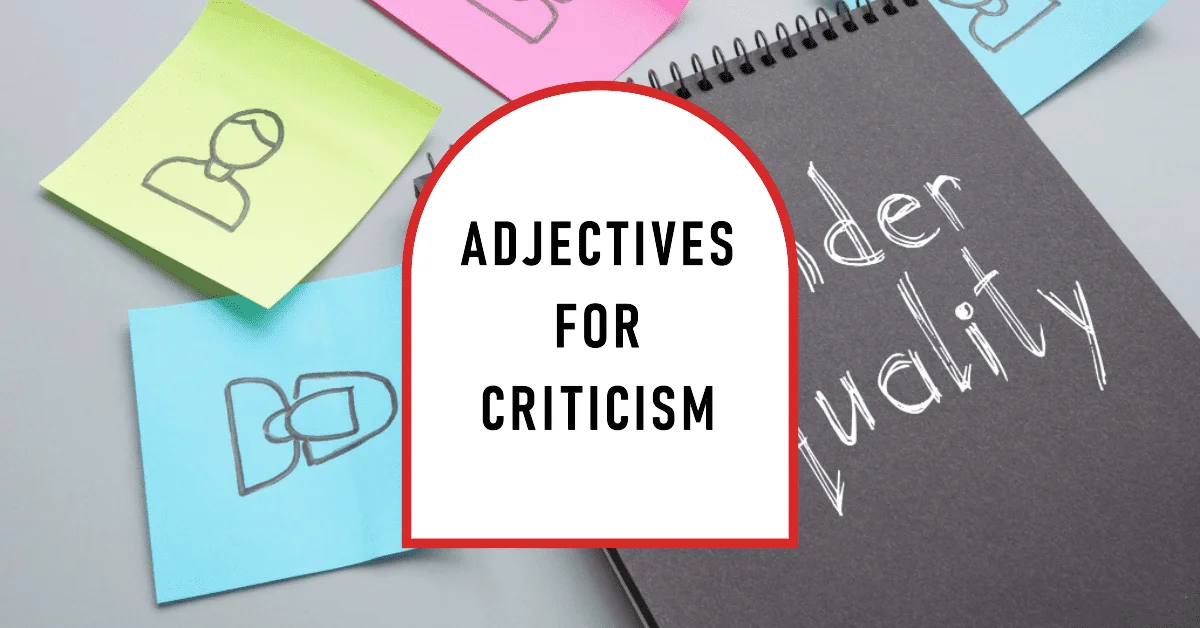Adjectives for Criticism – Words For Criticism
Criticism is an important part of life. It can help us to grow and develop, and it can also be used to motivate us to do better. But criticism can also be hurtful and damaging if it is not handled correctly. Knowing the right adjectives to use when describing criticism can help us to express our feelings in a more constructive way. In this article, we will look at some of the most commonly used adjectives for criticism.

Adjectives for Criticism | Positive Words For Criticism
1. Harsh: Harsh criticism is criticism that is overly critical and often unkind. It can be hurtful and damaging to the recipient.
2. Blunt: Blunt criticism is criticism that is direct and to the point. It can be useful in certain situations, but it can also be seen as insensitive.
3. Constructive: Constructive criticism is criticism that is intended to help the recipient improve. It is usually given in a positive and supportive way.
4. Unfair: Unfair criticism is criticism that is not based on facts or evidence. It can be damaging to the recipient and should be avoided.
5. Unjust: Unjust criticism is criticism that is not based on facts or evidence and is often biased. It can be damaging to the recipient and should be avoided.
6. Unreasonable: Unreasonable criticism is criticism that is not based on facts or evidence and is often unreasonable. It can be damaging to the recipient and should be avoided.
7. Unhelpful: Unhelpful criticism is criticism that is not useful or helpful. It can be damaging to the recipient and should be avoided.
8. Unwarranted: Unwarranted criticism is criticism that is not based on facts or evidence and is often unwarranted. It can be damaging to the recipient and should be avoided.
9. Unkind: Unkind criticism is criticism that is not kind or considerate. It can be damaging to the recipient and should be avoided.
10. Unnecessary: Unnecessary criticism is criticism that is not necessary or helpful. It can be damaging to the recipient and should be avoided.
Conclusion
Criticism can be a useful tool for helping us to grow and develop, but it can also be damaging if it is not handled correctly. Knowing the right adjectives to use when describing criticism can help us to express our feelings in a more constructive way. By understanding the different adjectives for criticism, we can ensure that our criticism is constructive and helpful, rather than hurtful and damaging.
FAQs
Q1. What is constructive criticism?
Constructive criticism is criticism that is intended to help the recipient improve. It is usually given in a positive and supportive way.
Q2. What is unfair criticism?
Unfair criticism is criticism that is not based on facts or evidence. It can be damaging to the recipient and should be avoided.
Q3. What is unkind criticism?
Unkind criticism is criticism that is not kind or considerate. It can be damaging to the recipient and should be avoided.


